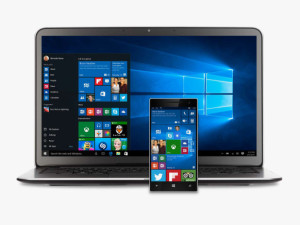
So you finally installed Windows 10 and joined the ranks of the other 67 million users. You open your browser to search for a place to grab lunch, and Bing already knows your location. You notice that all the banner ads are geared toward your secret knitting hobby. And when you open Cortana to ask what’s going on, she knows your name and the embarrassing nickname your mother calls you.
This may seems like a stretch, but you’d be surprised by the amount of personal information Windows 10 collects from its users—information including phone numbers, GPS location, credit card numbers, and even video and audio messages. Of course, Microsoft’s privacy statement outlines all the data that is collected, and you agreed to this when you downloaded Windows 10 and checked the terms of service.
In this Age of the Unread Terms of Service Agreement, it’s important to, well, read the ToS. It’s too easy for our technologies to gather personal information without our realizing it. Microsoft is far from the only perpetrator, but since it just delivered us an exciting new operating system, it’s time to dig into those settings.
The Fine Print
In the privacy statement mentioned before, Microsoft goes through three ways it uses personal data: “(1) to operate our business and provide (including improving and personalizing) the services we offer, (2) to send communications, including promotional communications, and (3) to display advertising.” If you want to know more about what Microsoft is talking about, I highly encourage you to browse the privacy statement (seriously), but here’s the gist of it:
1. “To operate our business…”: Many of Microsoft’s applications require personal information in order to operate. For example, if you are using the Maps application, it will need your location to function properly. This instance makes sense, but not all applications are quite as direct with their usage of your information. Cortana also uses your location, and the only way to prevent this is to not use Cortana. Microsoft also collects data to understand why certain applications crash in order to improve them, but this also means tracking your usage of these applications. This means that if Microsoft Office crashes while you are using it, Microsoft will be able to see the Excel or Word documents that were open during the crash.
3. “To display advertising”: It seems like standard internet procedure to track users in order to sell ads. Facebook does it, Google does it, and Microsoft does it. Microsoft generates revenue from ads, and by selling demographic information to third-party advertisers, Microsoft can make even more. This is called interest-based advertising, and Microsoft even gives you your own advertising ID to make things easier. You can opt-out of interest-based ads, by following this link. However, opting-out does not prevent data collection nor does it result in less ads.
Turning Off the Tracking
First things first: Head to your privacy settings. Hit Start, then finding Settings, then clicking Privacy. From the Privacy menu you can alter how your computer uses the information from your location, microphone, camera and so on. While in the Privacy menu, you’ll want to click Feedback & Diagnostics and change the Feedback Frequency to “never” and Diagnostic and Usage Data to “basic.” Doing this will help prevent Microsoft from gathering random information.
Guard Your Browser History
Edge sends your Internet browsing history to Microsoft in order to “help Cortana personalize your experience.” You can turn this off by clicking on the ellipsis button in the top right corner of Edge, then go to Settings > Advanced Settings > View Advanced Settings, and under Privacy and Services turn off “Have Cortana Assist Me in Microsoft Edge.” And while you’re in the Privacy and Services menu, make sure you turn off “use page prediction to speed up browsing, improve reading, and make my overall experience better” (which is an incredible title for a default setting).
Don’t Get Tricked Into Creating a Microsoft Account
Windows 10 also prompts you by default to create a Microsoft account, but you should probably skip this if you are concerned about your private information. Not creating an account will keep your activity and information local to your computer, while having an account will create a link for Microsoft to piece all of the metadata it gathers back to your identity. Before creating a Microsoft account, be sure to read up on its privacy policy.1
In order to delete or manage your Microsoft account go to Settings > Accounts > Your Account.
Exercise Cortana Caution
While Cortana may be one of the most exciting parts of Windows 10, she’s a bit intrusive. Microsoft prides itself on Cortana’s ability to learn about you and create a more personal experience, but in order to do this Cortana has to gather a lot information from you. This information includes anything from location, contacts, and even speech and handwriting data. Perhaps most significantly, all your interactions with Cortana are stored in the cloud.
All of this is part of Microsoft’s attempt to make Windows 10 more personalized, but if that sounds too creepy for you, you can adjust your settings by logging in here. From there you can clear the “interests” data that Cortana and Bing learned about you, as well as clear other Cortana data including “Speech, Inking and Typing” information.
Make sure to recheck your settings after each Microsoft Update !!

